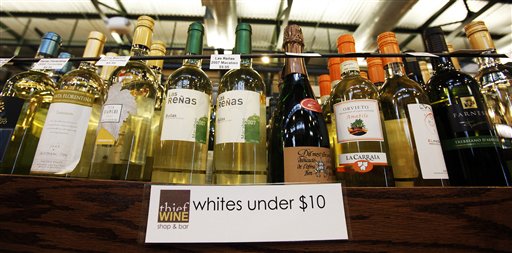In 44 Liquormart, Inc. v. Rhode Island, 517 U.S. 484 (1996), the Supreme Court struck down, as a violation of the First Amendment’s free speech clause, a state law prohibiting the advertising of alcohol prices. The decision continued the Court’s move toward providing commercial speech First Amendment protection, unless such communication is fraudulent or illegal.
The Court has historically extended less protection to commercial speech than to political speech. Commercial speech has been viewed as of lesser importance and subject to numerous restrictions in order to prevent fraud.
Court expands First Amendment protection for commercial speech
With its ruling in Virginia State Board of Pharmacy v. Virginia Citizens Consumer Council, Inc. (1976), however, the Court began extending First Amendment protection to commercial speech. It ruled that speakers and advertisers have a right to speak and that listeners and consumers have a right to hear or receive information.
Four years later, the Court in Central Hudson Gas and Electric Corp. v. Public Service Commission (1980) proposed a four-part test to determine when regulation of commercial speech is permitted.
First, a court must decide whether the expression is fraudulent or illegal. If it is neither, then the court must ask whether the asserted government interest is substantial. If both questions are answered affirmatively, the court must determine whether the regulation directly advances the government interest asserted and whether it is more extensive than is necessary to serve that interest. If the regulation is tailored narrowly to secure the interest, then the regulation of the commercial speech will be upheld.
The Court applied this four-part Central Hudson test to 44 Liquormart.
Rhode Island prohibited advertising liquor products
At issue in this case was a Rhode Island statute prohibiting the advertising of liquor prices. Claiming that the ban violated its First Amendment rights, 44 Liquormart sought a declaratory judgment. The state justified its ban by asserting that the prohibition on advertising furthered the compelling government interest of promoting temperance. The Court disagreed.
Court said Rhode Island interest in promoting temperance was not narrowly drawn
Justice John Paul Stevens applied the four-part Central Hudson test for the Court. As in Virginia State Board of Pharmacy, Stevens and the Court stated that the right of consumers to receive truthful product information about prices was protected speech. He also acknowledged that the state interest in temperance was substantial and that the ban on advertising liquor prices did advance that interest.
Stevens argued, however, that the state interest in promoting temperance was not drawn narrowly enough to prevent consumers from receiving lawful and truthful information about prices. Moreover, Rhode Island had failed to show that the advertising ban would significantly reduce alcohol consumption and that this total ban was more extensive than necessary to secure the state’s goal.
In a concurring opinion, Justice Clarence Thomas reasoned that truthful, nonmisleading commercial speech should be accorded the same level of First Amendment protection as political speech.
This article was originally published in 2009. David Schultz is a professor in the Hamline University Departments of Political Science and Legal Studies, and a visiting professor of law at the University of Minnesota. He is a three-time Fulbright scholar and author/editor of more than 35 books and 200 articles, including several encyclopedias on the U.S. Constitution, the Supreme Court, and money, politics, and the First Amendment.

